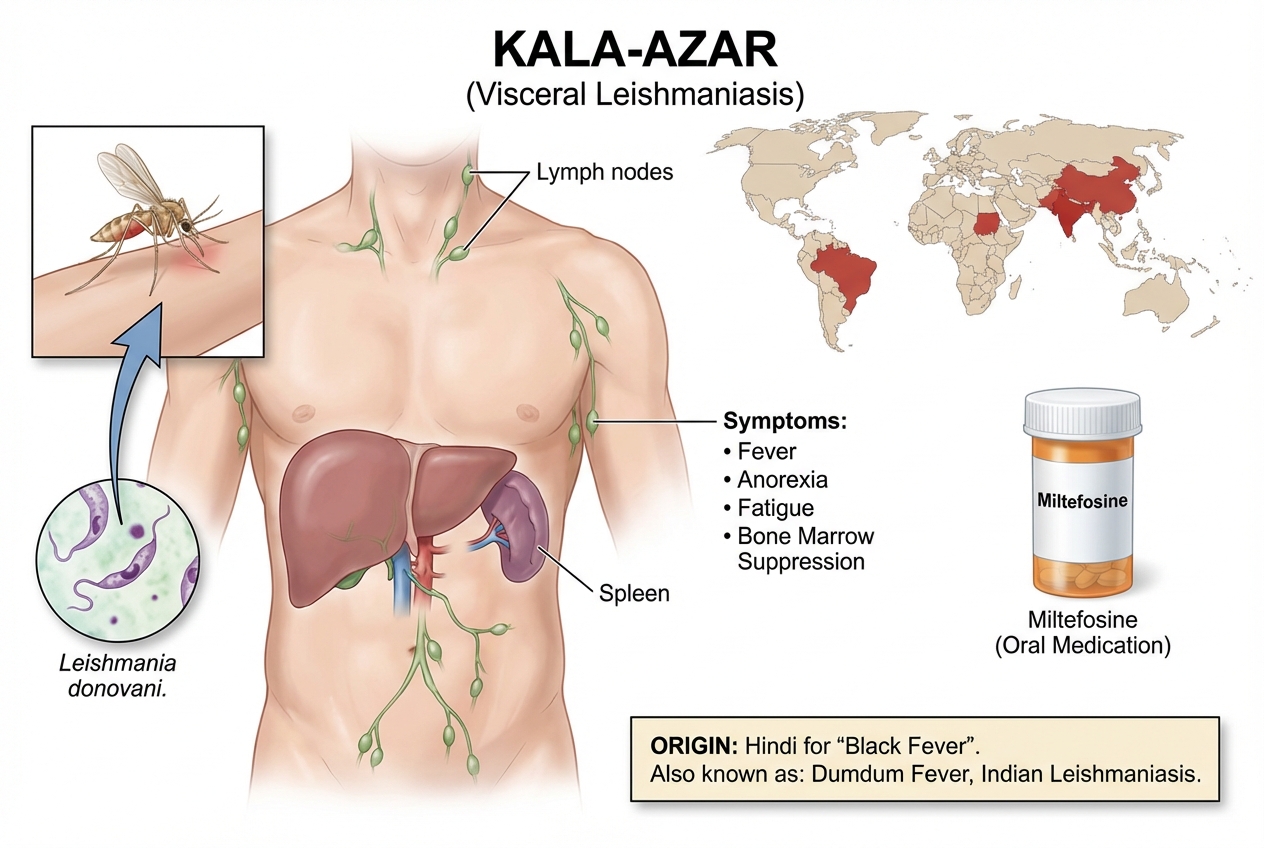
Kala-azar is a chronic and potentially life-threatening illness that affects internal organs, particularly the liver, spleen, and lymph nodes, caused by the parasite Leishmania donovani. This parasite is transmitted through the bites of sandflies and is prevalent in regions of Asia (mainly India), Africa (primarily Sudan), and South America (mostly Brazil), with about half a million cases annually. Europe, particularly the Mediterranean area, also reports several hundred cases each year, with a few occurring in North America.While kala-azar can sometimes present with minimal symptoms, it is often characterized by fever, a decrease in appetite (anorexia), fatigue, enlargement of the liver, spleen, and lymph nodes, and suppression of bone marrow function. It also heightens the risk for other secondary infections. Miltefosine was the first oral medication found to effectively treat kala-azar.The term "kala-azar" originates from India, where it means "black fever" in Hindi. The disease is also referred to as Indian leishmaniasis, visceral leishmaniasis, Dumdum fever, black sickness, and black fever. The name "Leishmania donovani" pays tribute to two individuals: British physician William Boog Leishman, who in 1903 documented the parasite responsible for kala-azar, and researcher C. Donovan, who independently made the same discovery in the same year.




